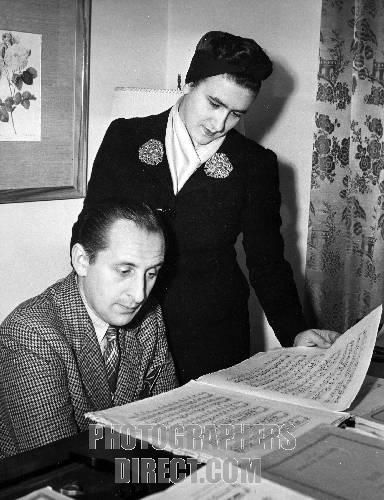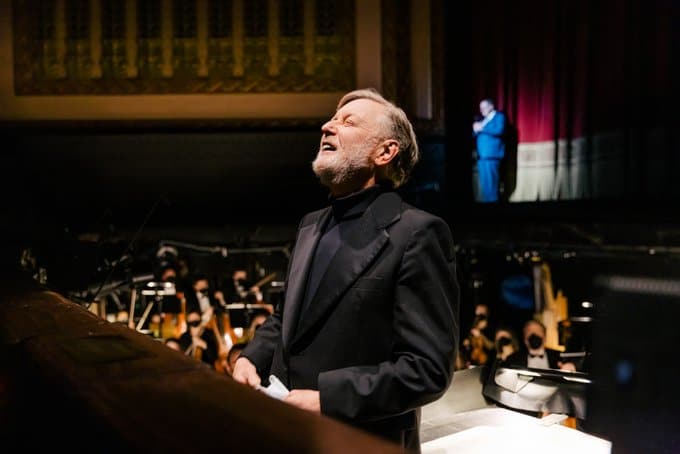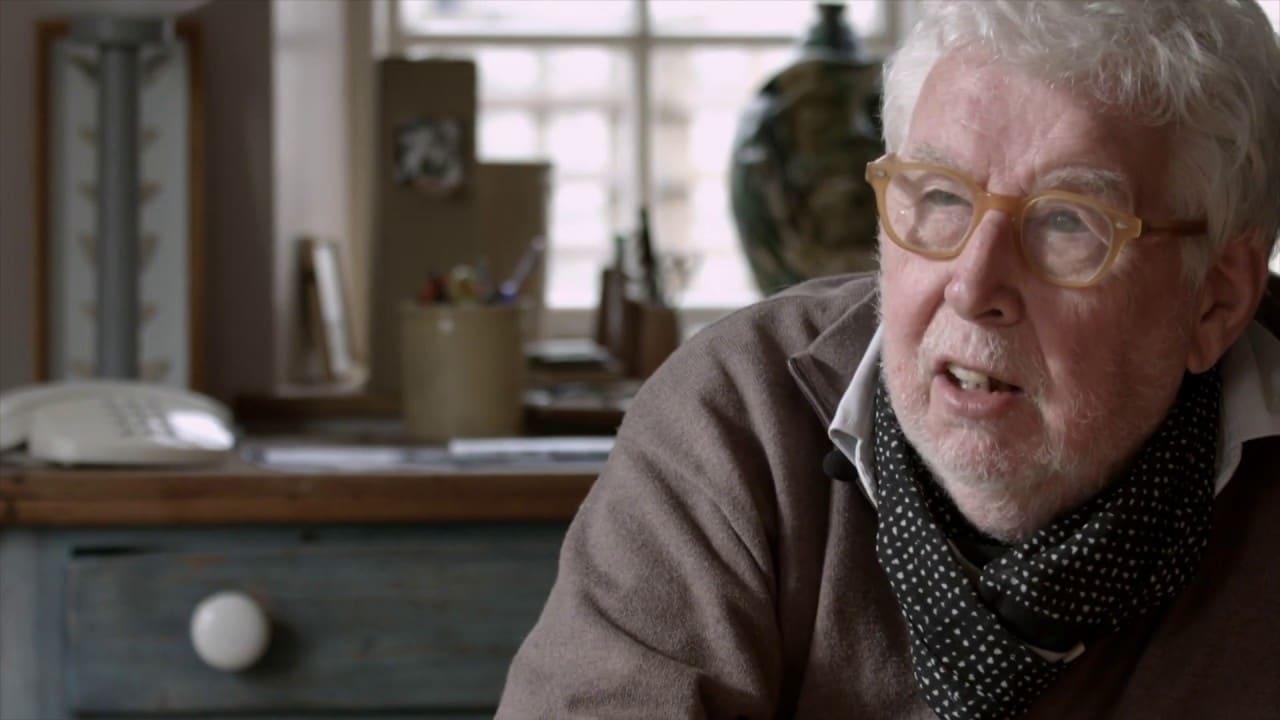Vladimir Horowitz: My best recording
mainThat’s what he told people late in life.
It’s not a piece many heard him play in concert.

That’s what he told people late in life.
It’s not a piece many heard him play in concert.
Decca is marking the birth centenary of John…

Statement by the Berlin Phil: It is with…

Andrew had a second coming on record when…

The Last Night that was picketed because Sir…

Session expired
Please log in again. The login page will open in a new tab. After logging in you can close it and return to this page.
Thank you for playing this. It amazed me.
Brilliantly played mediocre piece which gives the pianist ample space to demonstrate his prowess.
Czerny also wrote symphonies:
https://www.youtube.com/watch?v=-j1RE9qccig
A brilliant work, brilliantly made (beautiful writing for the orchestra) but the ideas are mediocre: everything happens as expected, and there is no emotional depth. Very instructive, because you better understand why Haydn, Mozart or Beethoven are better composers – having better ideas, and including the unexpected turn-of-phrase, and more emotional depth.
Bore-slap,
why the endless bile and flatulance about other composers with more talent than you. Not a good look.
Absolutely brilliant.
A favorite, and my first discovery that Horowitz could be charming. RCA issued it in the mid-1940s in a 78-rpm album with two other rarities: Tchaikovsky’s “Dumka” and Saint-Saens/Liszt/Horowitz “Danse macabre” each on a single platter lasting about eight minutes.
Daniel Poulin mentioned here recently that his friend Glenn Gould played it, but did not record it. One who did is Horolwitz’s friend Ivan Davis. Stephen Hough recorded a different, slightly longer Czerny variations piece in one of his piano albums.
Liszt’s old teacher Czerny on his last trip to Paris contributed a variation to Liszt’s “Hexameron” on a Bellini march, along with Thalberg, Herz, Pixis, and Chopin.
great playing
It’s quite a recording and I can see why Horowitz valued it so highly; my own opinion is that his 1940s recording of Chopin’s Andante Spianato and Grande Polonaise, in the solo piano version, was Horowitz’s greatest recording of all time, but it’s not like it’s an easy judgement to make.
I think what makes this work so interesting as a composition is that it shows Czerny demonstrating how to make practical use, playing real music, of the technical mastery that his admittedly less compelling teaching materials can result in, if full utilized. This is the reward for all that pain.
Additionally, the basic theme that Czerny used was so well suited to the variations form, because that is precisely why Pierre Rode created it: Czerny’s work is based on the Air varié for string quartet by Rode, although some sources suggest that what Czerny actually heard and was impressed by was an ornamented version for voice of that instrumental work. Both Rode and Czerny are now regarded as composers, if that is the right word, purely of teaching material (Rode for violin of course) but in their time they were respected as creative musicians as well as brilliant executants, and the fact that they were teachers on their respective instruments was taken for granted – of course they taught. Both reputations constricted over time but in this work both reputations are at least somewhat revived, thanks to Horowitz’s brilliant sympathy for the idiom.
My personal favorite recording by Vladimir Horowitz is a live performance of the Domenico Scarlatti Sonata in B Minor. In his superb autobiography, “A Walk On the Wild Side,” Earl Wild offers myriad insights into the music and personality of Horowitz, who was a treasured friend.
http://www.azuremilesrecords.com/phantompuppetpoetry.html
http://azuremilesrecords.com/wildlyenthralled.html
Horowitz did not compose, he only occasionally made versions of pieces as with Rachmaninoff’s 2nd sonata. So there does not exist something like ‘Horowitz’ music’.
I believe Horowitz’s Carmen Variations is as close as Horowitz to composition. I would call it a creative transcription. Personally I prefer to listen to the real Carmen or to Horowitz playing great music, especially Scarlatti.
https://www.youtube.com/watch?v=EHqqJfRDnBY
I did not know this… superhuman fireworks but musically quite superfluous. In the style of Rachmaninoff.
I feel you’re perhaps overlooking the broader, contextual meaning of the word “music”, John, it being understood by knowledgeable readers like yourself how Horowitz obviously interprets the music of composers, this being “the music” he recreates on the piano. And I suppose I do believe to a certain degree that a performer does indeed become “the music” if playing at a high level, an extreme state myriad great performing artists aspire towards.
Yes, but I object to the careless and [redacted] references of the performer’s ‘music’ which gives the wrong impression. Like Bang Bang talking about ‘his’ music when he actually meant Beethoven, Chopin, Liszt, etc. which are not mentioned. It stimulates the usual parasitic behavior which claims that the scores and composers who wrote them, are mere suppliers for the performers’ art. And that is not true.
Well, there’s his “Danse Excentrique”..
https://youtu.be/gVHdeHnD9oY
Silly hobbyism….
More than brilliant: adorable and affectionate.
During one of our marathon conversations at his dazzling Carnegie Hall abode, Don Shirley mentioned having taken piano lessons from Vladimir Horowitz.
http://www.azuremilesrecords.com/overcoming.html
This is a delightfully engaging work, one that Vladimir Horowitz clearly loved, touching haysa (humor, playfulness), adbhuta (wonderment), and shringara (in this instance, tenderness) rasas. And it sounds remarkably recent, too, like Chico Marx might have endeavored to perform it. Glancing at the life of Carl Czerny, whom I’ve never listened to before – thanks for posting this, Norman – or knew anything about beyond the famous studies (which regretfully became so famous as to overshadow everything else), so I’m guessing some readers may be in the same boat, he knew Beethoven perhaps as well as anyone, including premiering the First and Fifth Piano Concertos, and taught none other than Franz Lizst how to play the piano, not to mention arranging for the young Lizst to meet Beethoven, who kissed the future composer on the forehead. Brahms and Stravinsky were among the composers who admired the compositions of Czerny, and it is evident he adds a unique and appealing voice to music, presenting the zeitgeist of his time in a different light. I hope the quality of the performances Carl Cherny receives will rise towards the level of the Horowitz recording here providing justice for his music moving forward.
typo: Carl Czerny
[touching haysa (humor, playfulness)]
I generally abhor spelling corrections, but in this case, because the error is of form rather than mere orthography, and because it’s so wonderful that you’re invoking rasa theory: it’s haasya हास्य
I am speechless, there is nothing I can say except the world misses you. You will always be loved. Patrick Park